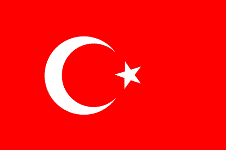Restorative Justice and Mediation in Ireland
I have the privilege this week of serving as the keynote speaker at the annual Irish Mediator’s Institute conference in Dublin, Ireland. I will talk to this professional mediation organization about the incorporation of restorative justice principles into high emotional conflicts. In this time of family, community, political, national, and international conflict and discord, the principles of restorative justice that call all of us to truly listen to those with whom we disagree, so that we can better understand the deep harm we are inflicting by our name-calling and demonizing others, can help us to recognize our shared humanity and a path to building peaceful relationships.
I will have no shortage of examples of the harm caused by our angry divisions. Whether I talk about the American presidential race, the continuing conflicts in Northern Ireland, or the harm caused by the BBC’s alleged cover-up of sexual abuse claims against a popular children’s television star, the harm has rippled out to affect thousands of people. From the family level to international relations, we see much abusive and threatening language being used instead of people sitting down and respectfully listening to each other’s perspectives and concerns. So many of us speak and act in anger without thinking about the harm that we can cause others by our actions. Restorative justice calls us to reflect about who is being harmed and to identify the nature of that harm and then to work on bringing healing to the people who have been affected.
At the Law School, my students and I have been a part of victim/offender dialogue sessions in which murderers and rapists sit down with their victims (or family members of their victims) to have exceedingly difficult conversations. These meetings always occur because a victim has made a request for that meeting. What we routinely experience is that even with people who have suffered the deepest harm, victims find some peace in having these very difficult conversations. Offenders can answer questions, express their deep remorse, and acknowledge (often for the first time) the incredibly profound harm they have caused. Victims (or survivors as many like to be called) are able to give voice to the devastation they have suffered, get answers to questions that were never addressed in the judicial system, and find some peace in the offender’s apology. Offenders routinely report that they believe answering the victims’ questions is the best thing they have ever done for someone else.
I have seen restorative justice work in almost every setting where this is conflict. The processes do not “solve” every problem, but it reminds the participants that we are all part of a human family. What we do and say matters and can cause harm or bring great joy to others. The way out of our pain and anger is not to lash out but to listen to each other “with out hearts as well as our heads.”
It will be a wonderful experience to work with the Irish mediators and to explore with them how they can incorporate restorative justice into their work.

 After a delegation of members of the Turkish Parliament
After a delegation of members of the Turkish Parliament